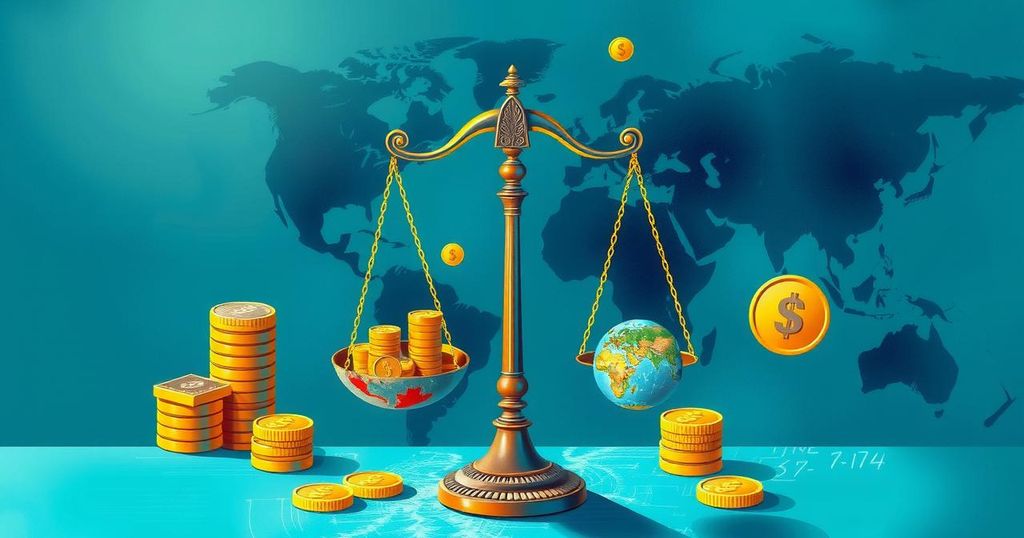India’s Misguided Confidence in Response to Trump’s Tariffs
India is overly confident regarding President Trump’s impending tariffs, believing a new trade deal will be favorable. However, underlying pessimism about manufacturing competitiveness persist. Concerns over past trade agreements and the widening trade deficit with Southeast Asia contribute to a culture of export pessimism. Ultimately, India must prioritize improving production efficiency and quality to succeed.
In light of recent developments, India appears to be overly confident regarding President Trump’s tariffs after his commitment to a new trade deal during Prime Minister Narendra Modi’s visit to Washington. This optimism may stem from the anticipation that India will reduce tariffs substantially as a result of these new levies, which are expected to take effect from April.
While many Indian exporters understand the potential detriment of US duties, there is a sense of resilience emerging among leaders who believe their exporters could navigate the transformed global trade landscape. However, the underlying sentiment among many officials is one of deep pessimism about the competitiveness of Indian manufacturing, which they feel has been hindered by previous trade agreements that exacerbated de-industrialization.
Concerns regarding the widening trade deficit with Southeast Asia following a free trade agreement have led to a belief that Indian manufacturing might never achieve the cost-effectiveness or quality necessary to compete. In this context, some within the industry view the prospect of tariffs as beneficial, as they believe it could level the playing field against other emerging economies.
India possesses unique advantages such as its large economy and reliability in policy, empowering it in trade negotiations. Many stakeholders in business and government express confidence that astute bilateral negotiations can yield better outcomes than those offered by a multilateral trading system, compensating for domestic manufacturing limitations.
The prevailing sentiment suggests that as long as President Trump imposes stricter tariffs on other nations, Indian exporters will merely face temporary difficulties. There is a belief that India’s global status will ultimately bestow competitive advantages to its exporters.
Nonetheless, uncertainties loom regarding whether this attitude will persist. Though India has significant market potential, it may be inadvertently left at a disadvantage if influenced by assumptions about the efficiency of its producers. The pervasive culture of export pessimism may hinder progress, leading to misaligned perceptions of competitiveness.
In essence, the crucial lesson remains that competitive success cannot be shortcut through negotiation alone; it necessitates the sustained production of superior goods at effective prices, a reality that India must confront sooner rather than later.
In summary, India’s confidence regarding Trump’s tariffs appears misaligned with a deeper pessimism about its manufacturing capabilities. While some leaders believe they can navigate new trade conditions, the overarching sentiment reflects concerns about competitiveness, largely stemming from past trade agreements. To thrive, India must ensure that it produces cheaper and higher quality goods, rather than relying solely on diplomatic negotiations to achieve trade success.
Original Source: m.economictimes.com








Post Comment